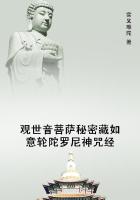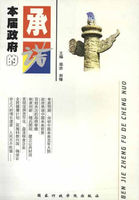5. Names necessary to numbers. By the repeating, as has been said, the idea of an unit, and joining it to another unit, we make thereof one collective idea, marked by the name two. And whosoever can do this, and proceed on, still adding one more to the last collective idea which he had of any number, and gave a name to it, may count, or have ideas, for several collections of units, distinguished one from another, as far as he hath a series of names for following numbers, and a memory to retain that series, with their several names:
all numeration being but still the adding of one unit more, and giving to the whole together, as comprehended in one idea, a new or distinct name or sign, whereby to know it from those before and after, and distinguish it from every smaller or greater multitude of units.
So that he that can add one to one, and so to two, and so go on with his tale, taking still with him the distinct names belonging to every progression; and so again, by subtracting an unit from each collection, retreat and lessen them, is capable of all the ideas of numbers within the compass of his language, or for which he hath names, though not perhaps of more. For, the several simple modes of numbers being in our minds but so many combinations of units, which have no variety, nor are capable of any other difference but more or less, names or marks for each distinct combination seem more necessary than in any other sort of ideas. For, without such names or marks, we can hardly well make use of numbers in reckoning, especially where the combination is made up of any great multitude of units;which put together, without a name or mark to distinguish that precise collection, will hardly be kept from being a heap in confusion.
6. Another reason for the necessity of names to numbers. This Ithink to be the reason why some Americans I have spoken with, (who were otherwise of quick and rational parts enough,) could not, as we do, by any means count to 1000; nor had any distinct idea of that number, though they could reckon very well to 20. Because their language being scanty, and accommodated only to the few necessaries of a needy, simple life, unacquainted either with trade or mathematics, had no words in it to stand for 1000; so that when they were discoursed with of those greater numbers, they would show the hairs of their head, to express a great multitude, which they could not number;which inability, I suppose, proceeded from their want of names. The Tououpinambos had no names for numbers above 5; any number beyond that they made out by showing their fingers, and the fingers of others who were present. And I doubt not but we ourselves might distinctly number in words a great deal further than we usually do, would we find out but some fit denominations to signify them by; whereas, in the way we take now to name them, by millions of millions of millions, &c., it is hard to go beyond eighteen, or at most, four and twenty, decimal progressions, without confusion. But to show how much distinct names conduce to our well reckoning, or having useful ideas of numbers, let us see all these following figures in one continued line, as the marks of one number: v. g.
Nonillions Octillions Septillions Sextillions Quintrillions 857324 162486 345896437918423147Quartrillions Trillions BillionsMillions Units 248106 235421 261734 368149623137The ordinary way of naming this number in English, will be the often repeating of millions, of millions, of millions, of millions, of millions, of millions, of millions, of millions, (which is the denomination of the second six figures). In which way, it will be very hard to have any distinguishing notions of this number. But whether, by giving every six figures a new and orderly denomination, these, and perhaps a great many more figures in progression, might not easily be counted distinctly, and ideas of them both got more easily to ourselves, and more plainly signified to others, I leave it to be considered. This I mention only to show how necessary distinct names are to numbering, without pretending to introduce new ones of my invention.
7. Why children number not earlier. Thus children, either for want of names to mark the several progressions of numbers, or not having yet the faculty to collect scattered ideas into complex ones, and range them in a regular order, and so retain them in their memories, as is necessary to reckoning, do not begin to number very early, nor proceed in it very far or steadily, till a good while after they are well furnished with good store of other ideas: and one may often observe them discourse and reason pretty well, and have very clear conceptions of several other things, before they can tell twenty.
And some, through the default of their memories, who cannot retain the several combinations of numbers, with their names, annexed in their distinct orders, and the dependence of so long a train of numeral progressions, and their relation one to another, are not able all their lifetime to reckon, or regularly go over any moderate series of numbers. For he that will count twenty, or have any idea of that number, must know that nineteen went before, with the distinct name or sign of every one of them, as they stand marked in their order; for wherever this fails, a gap is made, the chain breaks, and the progress in numbering can go no further. So that to reckon right, it is required, (1) That the mind distinguish carefully two ideas, which are different one from another only by the addition or subtraction of one unit: (2) That it retain in memory the names or marks of the several combinations, from an unit to that number; and that not confusedly, and at random, but in that exact order that the numbers follow one another. In either of which, if it trips, the whole business of numbering will be disturbed, and there will remain only the confused idea of multitude, but the ideas necessary to distinct numeration will not be attained to.















